What is a Thai Aromatherapy Massage
Have you ever heard of a Thai Aromatherapy Massage? This unique form of massage therapy combines the healing properties of essential oils with traditional Thai massage techniques.
We will explore the benefits of a Thai Aromatherapy Massage, the essential oils commonly used, how the massage is performed, and what you can expect during a session.
If you’re looking to relieve muscle tension, reduce stress, and promote relaxation, a Thai Aromatherapy Massage may be just what you need.
Key Takeaways:
What Is A Thai Aromatherapy Massage?
A Thai Aromatherapy Massage combines the techniques of traditional Thai bodywork with the soothing scents of essential oils to create a therapeutic experience that promotes balance and wellbeing.
This unique massage practice traces its roots back to ancient Thailand, where healers used aromatic plants and herbs for their potent healing properties. The fusion of Thai massage techniques, focused on acupressure and stretching, with the aromatic benefits of essential oils enhances the body’s ability to relax and release tension. The principle behind Thai Aromatherapy Massage lies in restoring the body’s natural flow of energy, helping to harmonize physical, mental, and emotional states.
What Are The Benefits Of A Thai Aromatherapy Massage?
A Thai Aromatherapy Massage offers numerous benefits, including the relief of muscle tension, improved circulation, reduction of stress and anxiety, and the promotion of deep relaxation through the therapeutic use of essential oils and bodywork techniques that target energy channels and meridians.
One of the key advantages of this massage technique is its ability to stimulate blood flow, which aids in the delivery of oxygen and nutrients to tissues, promoting overall health and healing. Essential oils used in the massage not only create a soothing ambiance but also have properties that can uplift the mood and alleviate mental fatigue.
The manipulation of pressure points and stretching during the massage helps to improve flexibility and joint mobility, providing relief from stiffness and discomfort.
Relieves Muscle Tension
One of the key benefits of a Thai Aromatherapy Massage is its ability to effectively relieve muscle tension through targeted massage techniques that focus on releasing tightness and restoring flexibility in the muscles.
Thai Aromatherapy Massage combines elements from traditional Thai massage and the benefits of essential oils to provide a deeply relaxing experience.
This massage therapy not only addresses existing muscle tension but also works towards preventing future tension buildup. The therapist uses techniques such as gentle stretching, rhythmic compression, and acupressure to manipulate muscles and release knots.
The aromatherapy aspect further enhances the rejuvenating effects by incorporating the healing properties of essential oils, promoting relaxation and easing muscular discomfort.
Improves Circulation
Another significant benefit of a Thai Aromatherapy Massage is its positive impact on circulation by enhancing the flow of energy through meridians and energy channels while supporting lymphatic system function for improved overall wellness.
Thai Aromatherapy Massage uses a combination of gentle pressure, stretching, and aromatic oils to stimulate the body’s natural energy flow, known as ‘Qi’ in traditional Chinese medicine. By targeting specific meridians, which are interconnected pathways through which energy flows, the massage helps to release any blockages that may be impeding circulation.
The therapeutic oils used in the massage not only relax the muscles but also contain properties that aid in detoxification and lymphatic drainage. This holistic approach to improving circulation offers a comprehensive way to enhance overall well-being and encourage the body’s self-healing mechanisms.
Reduces Stress and Anxiety
Through the soothing blend of essential oils and the relaxing techniques used during a Thai Aromatherapy Massage, individuals can experience a significant reduction in stress and anxiety levels, allowing for a calming and rejuvenating experience.
The art of aromatherapy in this massage not only relaxes the body but also calms the mind, creating a harmonious balance. The gentle strokes and pressure points target areas of tension, releasing built-up stress and promoting a deep sense of relaxation.
By inhaling the aromatic scents deeply, individuals can benefit from the therapeutic properties of the oils, which can uplift the mood and soothe frazzled nerves. The entire experience works holistically to restore tranquility and promote a sense of well-being.
Promotes Relaxation
The use of a carefully curated blend of essential oils in a Thai Aromatherapy Massage creates a soothing atmosphere that promotes deep relaxation, allowing individuals to unwind and rejuvenate both physically and mentally.
Each essential oil used in this blend is selected for its specific properties that enhance the overall relaxation experience. For example, lavender oil is known for its calming effects, helping to reduce stress and anxiety levels. Similarly, peppermint oil provides a refreshing and invigorating sensation, promoting mental clarity.
The combination of these essential oils creates a harmonious blend that not only soothes the senses but also helps to release tension held within the body. This holistic approach to relaxation during a Thai Aromatherapy Massage allows for a deeper connection between mind and body, facilitating a truly rejuvenating experience.
What Are The Essential Oils Used In A Thai Aromatherapy Massage?
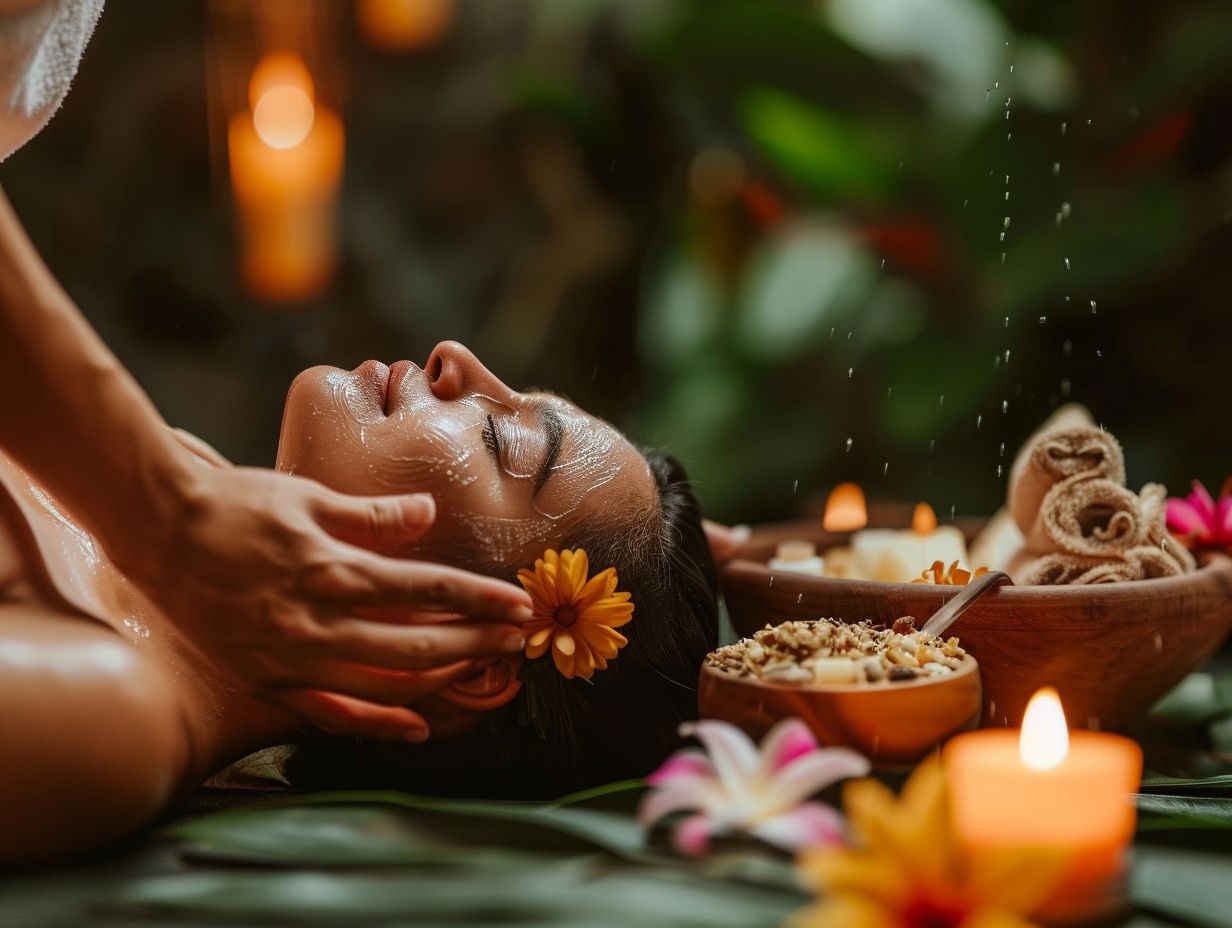
Each of these essential oils brings its unique set of benefits to the massage experience. Lavender, known for its calming properties, promotes relaxation and helps reduce stress and anxiety levels. On the other hand, Peppermint energizes the mind and body, offering a refreshing sensation and aiding in mental alertness.
Eucalyptus, with its fresh, camphoraceous scent, acts as a decongestant and can relieve respiratory issues, making it ideal for those looking to clear their airways during the massage.
Lastly, Rosemary is cherished for its ability to enhance focus and concentration, making it a great addition for individuals seeking mental clarity amidst their massage session.
Lavender Oil
Lavender oil is a popular choice in Thai Aromatherapy Massage due to its calming and relaxing properties, making it ideal for promoting stress relief and creating a tranquil spa-like experience.
Its delicate floral scent not only soothes the senses but also helps to alleviate tension in the body, allowing for a deep sense of relaxation during the massage session. Studies have shown that Lavender oil can reduce anxiety levels and improve mood, contributing to an overall feeling of well-being.
- The antibacterial and anti-inflammatory properties of Lavender oil provide added benefits for the skin, leaving it nourished and rejuvenated.
- Thai Aromatherapy Massage using Lavender oil is known for its ability to balance the mind, body, and spirit, creating a harmonious atmosphere that fosters inner peace.
Peppermint Oil
Peppermint oil is known for its invigorating and refreshing properties, making it a popular choice in Thai Aromatherapy Massage to awaken the senses, promote circulation, and provide a cooling sensation.
Derived from the peppermint plant, this essential oil is packed with menthol, which gives it that signature cooling effect. When used in massage, Peppermint oil not only stimulates the mind but also helps in relieving muscle tension and reducing inflammation. Its crisp, minty aroma adds a revitalizing element to the massage experience, leaving the recipient feeling rejuvenated and uplifted. The analgesic properties of Peppermint oil make it a valuable ingredient in pain-relief balms and ointments.
Eucalyptus Oil
Eucalyptus oil is valued for its respiratory benefits and ability to promote mental clarity, making it a common choice in Thai Aromatherapy Massage to enhance breathing, clear the mind, and uplift the spirit.
In Thai Aromatherapy Massage, the distinct aroma of Eucalyptus oil not only opens up the airways, allowing for deeper and more efficient breathing, but it also has a refreshing and invigorating effect on the mind. This essential oil is known for its decongestant properties, which help alleviate respiratory issues and support overall respiratory health, making it a popular addition to aromatherapy blends.
Rosemary Oil
Rosemary oil is renowned for its ability to promote mental clarity and focus, making it an excellent choice in Thai Aromatherapy Massage for enhancing concentration, memory retention, and overall cognitive function.
Thai Aromatherapy Massage practitioners often incorporate rosemary oil into their sessions due to its stimulating properties that help rejuvenate the mind and improve cognitive performance.
The invigorating scent of rosemary oil is believed to awaken the senses and uplift one’s mood, creating a harmonious blend of relaxation and mental alertness during the massage experience.
Studies have suggested that the active compounds in rosemary oil can enhance neurotransmitter activity in the brain, leading to improved memory encoding and retrieval, aiding in overall cognitive function.
How Is A Thai Aromatherapy Massage Performed?
A Thai Aromatherapy Massage involves a meticulous process that includes preparation, the application of essential oils, specific massage techniques, and finishing touches to ensure a comprehensive and rejuvenating experience for the recipient.
Preparation is crucial as it sets the tone for the session; this involves creating a calming ambiance with soft lighting and soothing music to enhance relaxation. All essential oils are carefully selected based on their therapeutic properties, such as lavender for relaxation or eucalyptus for invigoration.
- Specific massage techniques unique to Thai Aromatherapy, like the use of palms, thumbs, and elbows, are employed to knead and release tension in muscles, promoting overall well-being.
- Final touches often include additional elements like hot herbal compresses or warm towels to further soothe and rejuvenate the body, leaving the recipient feeling refreshed and rejuvenated.
Preparation
The preparation phase of a Thai Aromatherapy Massage involves ensuring proper hygiene standards, ethical considerations, and client comfort to create a safe and welcoming environment for the massage session.
Hygiene practices play a crucial role in preventing the spread of germs and ensuring the well-being of both the client and the therapist. This includes sanitizing surfaces, using clean linens, and maintaining a sterile environment.
Ethical standards in massage therapy involve respecting the client’s boundaries, privacy, and confidentiality. Therapists must adhere to professional codes of conduct and prioritize the client’s well-being at all times.
Considering client comfort involves factors such as room temperature, lighting, and ensuring the client’s physical and emotional needs are met. By paying attention to these details, therapists can enhance the overall experience for their clients.
Application of Essential Oils
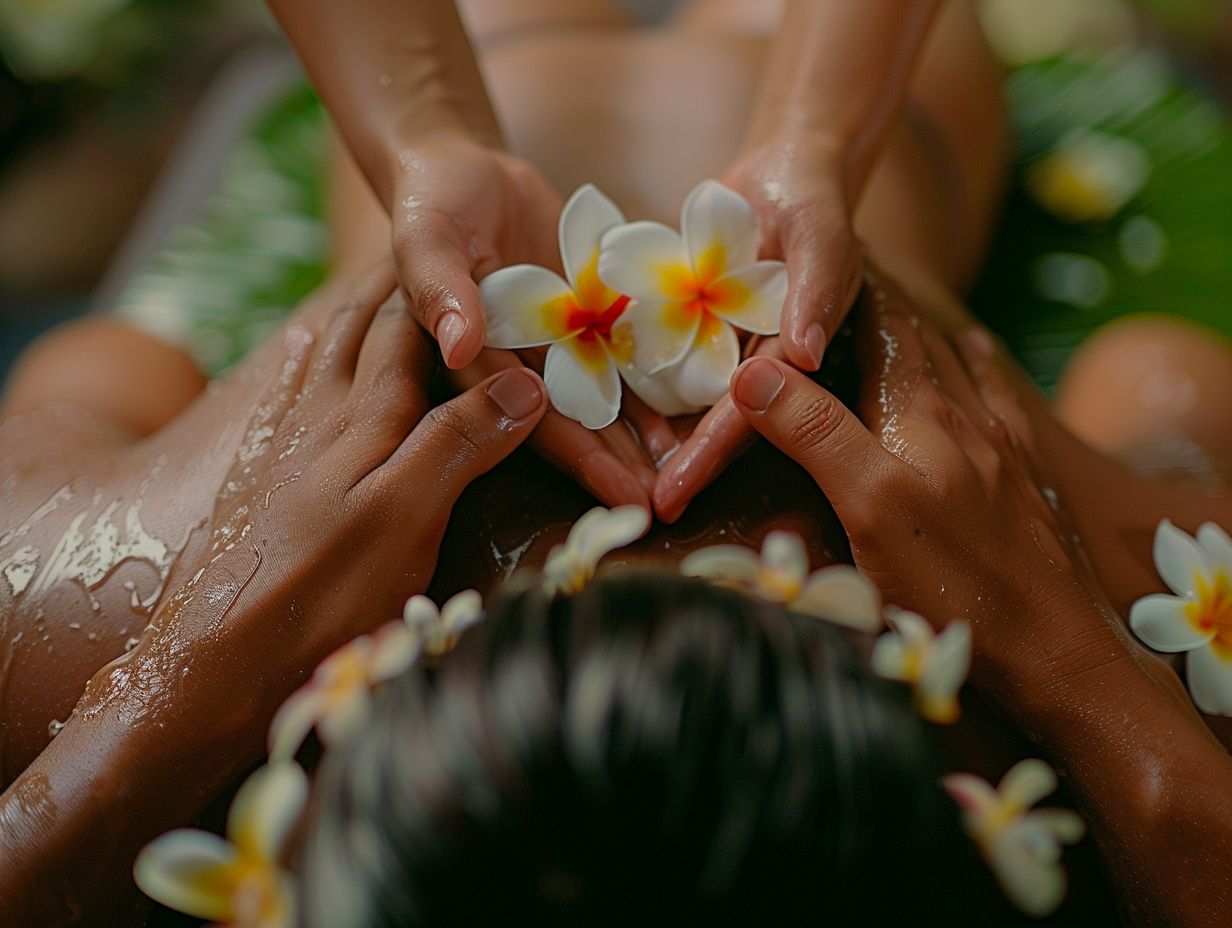
These essential oils are meticulously selected based on their therapeutic properties and the desired outcome of the massage session. The art of blending involves combining different oils in specific proportions to achieve a balanced and pleasing fragrance.
The aromas emitted by the oils play a crucial role in setting the mood and creating a serene atmosphere for the massage. Each oil contributes unique notes, ranging from floral and citrusy to woody and earthy, adding depth and complexity to the overall scent profile. This olfactory journey not only calms the mind but also helps in releasing tension from the body, allowing for a holistic experience of relaxation.
Massage Techniques
The massage techniques used in a Thai Aromatherapy Massage may include elements of Swedish massage, deep tissue work, gentle yoga stretching, and targeted meridian stimulation to address muscle tension, promote flexibility, and restore energy flow.
Swedish massage, known for its long and flowing strokes, helps in relaxing the muscles and improving blood circulation, crucial for overall well-being and stress relief. Deep tissue work, on the other hand, focuses on releasing deep-seated tension and chronic knots in the muscles, promoting better range of motion and aiding in postural alignment. Gentle yoga stretching incorporated in the massage session enhances flexibility, releases joint stiffness, and improves body awareness.
- Targeted meridian stimulation, a technique rooted in traditional Chinese medicine, aims to balance the flow of energy in the body’s meridians, allowing for a holistic approach to healing and revitalization.
Finishing Touches
The final stage of a Thai Aromatherapy Massage involves providing finishing touches that enhance the overall balance, therapeutic effect, and treatment outcome, ensuring that the recipient experiences a holistic sense of wellbeing and relaxation.
These finishing touches encompass small, intentional movements that help to integrate the benefits of the massage into the body. They can involve gentle stretching to release any remaining tension and promote flexibility.
The practitioner may use a light touch to smooth out any energetic imbalances and ensure the flow of positive energy throughout the body, promoting a sense of harmony and well-being.
By focusing on these final details, the Thai Aromatherapy Massage is brought to a gradual close, leaving the recipient feeling rejuvenated, balanced, and deeply relaxed.
What To Expect During A Thai Aromatherapy Massage?
A Thai Aromatherapy Massage offers a personalized and sensory-rich experience, featuring a relaxing atmosphere, customized techniques, and sensory stimulation that cater to individual preferences and promote a deeply rejuvenating session.
During this massage, one can expect to be immersed in a symphony of aromatic scents that are carefully selected to enhance relaxation and well-being. The therapist will tailor the pressure and techniques to address specific areas of tension, creating a harmonious balance between invigoration and tranquility.
The use of herbal oils not only nourishes the skin but also adds to the therapeutic benefits, leaving you feeling not just physically revived but mentally recharged too.
Relaxing Atmosphere
The ambiance of a Thai Aromatherapy Massage session is carefully curated to provide a relaxing atmosphere, with calming aromas, soothing music, and comfortable surroundings that encourage deep relaxation and stress relief.
One of the key elements that contribute to this serene setting is the infusion of aromas, such as lavender, lemongrass, and jasmine, which are known for their calming properties. The gentle scent wafting through the air helps to relax the mind and body, setting the stage for a truly immersive experience.
The soft and tranquil music playing in the background adds another layer of tranquility. The soothing notes create a harmonious backdrop, drowning out external distractions and allowing the client to fully unwind.
The overall ambiance further enhances the relaxation process. Soft lighting, plush cushions, and a gentle temperature all work together to create a cocoon of comfort, where worries melt away and tension dissipates, leaving the individual in a state of blissful tranquility.
Customized Experience
Individuals undergoing a Thai Aromatherapy Massage can expect a customized experience tailored to their specific needs and preferences, with the practitioner blending techniques, essential oils, and treatments to deliver a personalized and effective session.
Thai Aromatherapy Massage is not just a routine spa treatment; it’s a holistic approach that considers each person’s unique requirements. The skilled therapist will meticulously select the essential oils that resonate with your body, mind, and spirit, ensuring a harmonious blend for maximum benefits.
The techniques used in a Thai Aromatherapy Massage are adjusted in real-time based on your feedback and comfort levels, creating a fluid and responsive session that addresses your specific concerns with precision.
Sensory Stimulation
Sensory stimulation plays a vital role in a Thai Aromatherapy Massage, with the therapeutic scents of essential oils activating energy channels, enhancing relaxation, and providing additional benefits beyond the physical massage techniques.
The olfactory system, in particular, is highly engaged during a Thai Aromatherapy Massage, as the aromatic essences permeate the air, creating a multisensory experience. Aromatherapy is deeply rooted in the belief that certain scents can influence mood, emotions, and even physical well-being. The subtle yet powerful fragrances of essential oils used in Thai massage not only soothe the senses but also stimulate specific energy pathways in the body, promoting a harmonious flow of energy and enhancing the overall therapeutic effects of the massage.
Frequently Asked Questions
What is a Thai Aromatherapy Massage?
A Thai Aromatherapy Massage is a type of massage that combines the use of traditional Thai massage techniques with the therapeutic benefits of essential oils. It is designed to promote relaxation, improve circulation, and relieve tension in the muscles.
What are the benefits of a Thai Aromatherapy Massage?
A Thai Aromatherapy Massage can provide numerous benefits, such as reducing stress and anxiety, improving flexibility and mobility, boosting the immune system, and promoting overall well-being.
How long does a Thai Aromatherapy Massage typically last?
The duration of a Thai Aromatherapy Massage can vary, but it usually lasts between 60 to 90 minutes. However, some spas or massage therapists may offer longer or shorter sessions depending on the client’s needs.
What essential oils are typically used in a Thai Aromatherapy Massage?
Some commonly used essential oils in a Thai Aromatherapy Massage include lavender, eucalyptus, lemongrass, and peppermint. These oils are carefully chosen for their therapeutic properties and are often blended together to create a unique and personalized experience for the client.
Is a Thai Aromatherapy Massage suitable for everyone?
While a Thai Aromatherapy Massage can be beneficial for most people, it is not recommended for individuals with certain medical conditions, such as allergies, skin sensitivities, or recent injuries. It is always best to consult with a healthcare professional before trying any new massage therapy.
Are there any precautions to take before getting a Thai Aromatherapy Massage?
It is recommended to avoid heavy meals and alcohol before a Thai Aromatherapy Massage. It is also important to communicate with your massage therapist about any allergies or sensitivities you may have to ensure a safe and enjoyable experience.


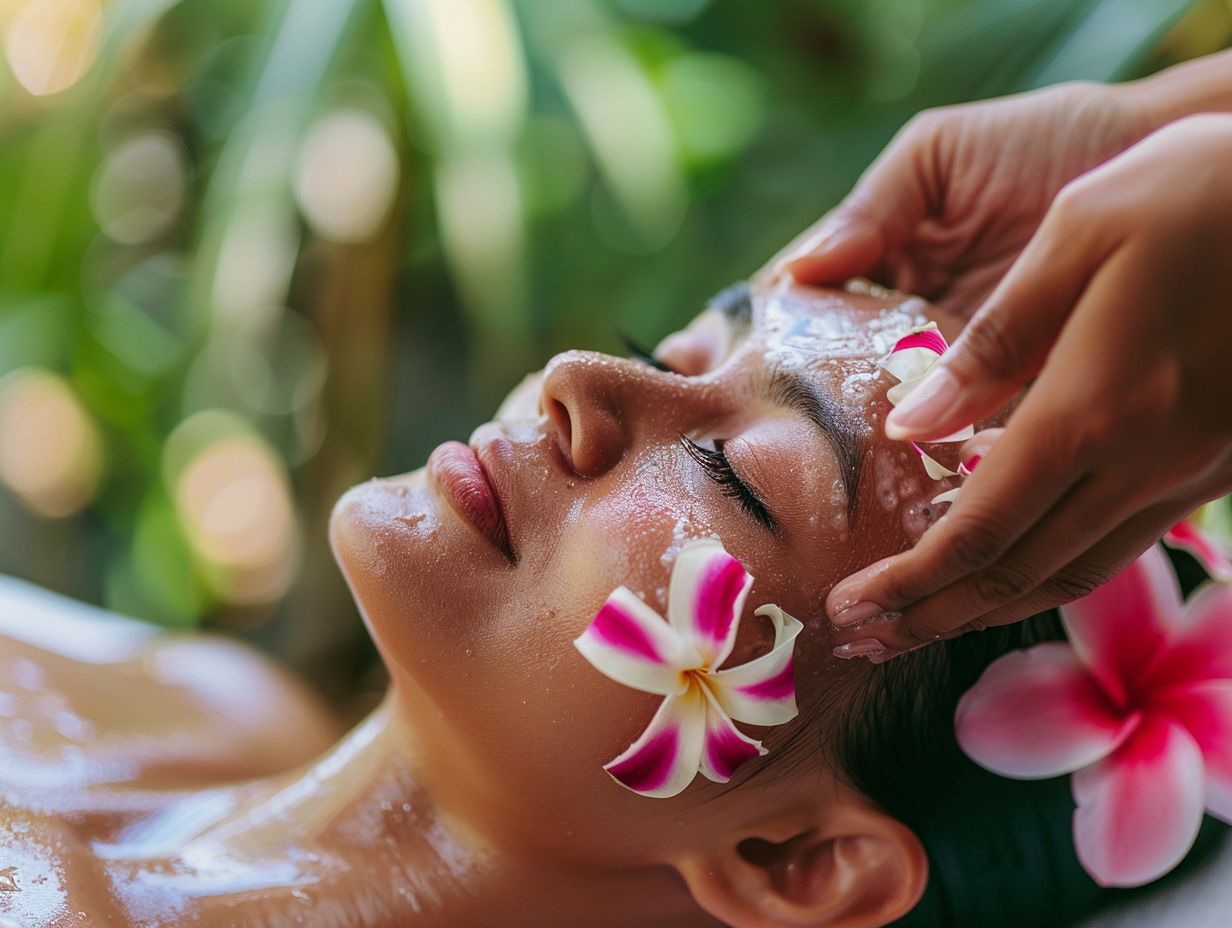


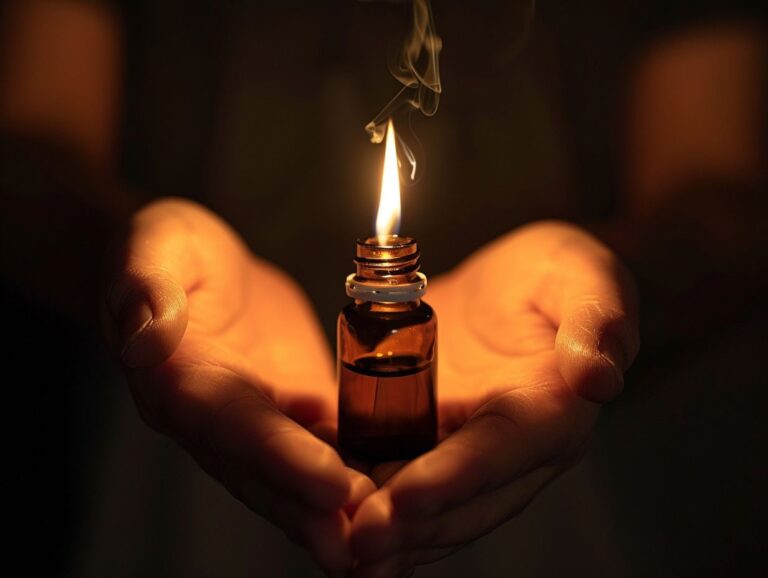
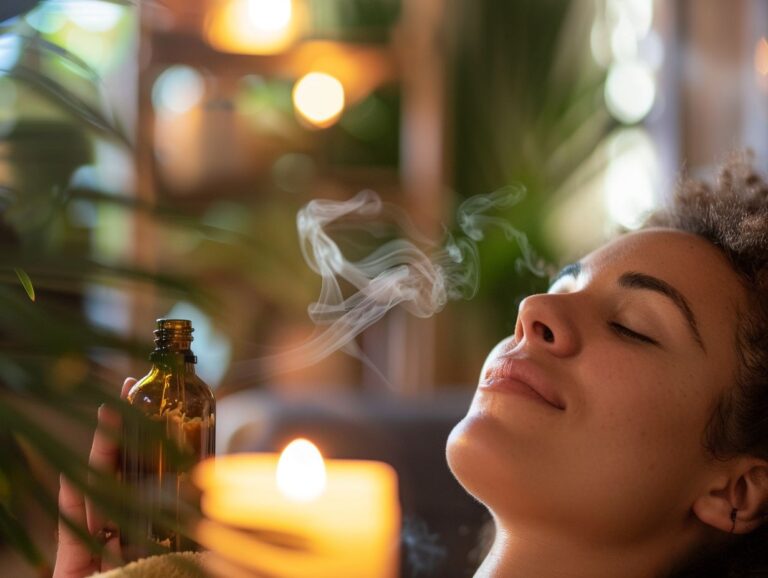


One Comment